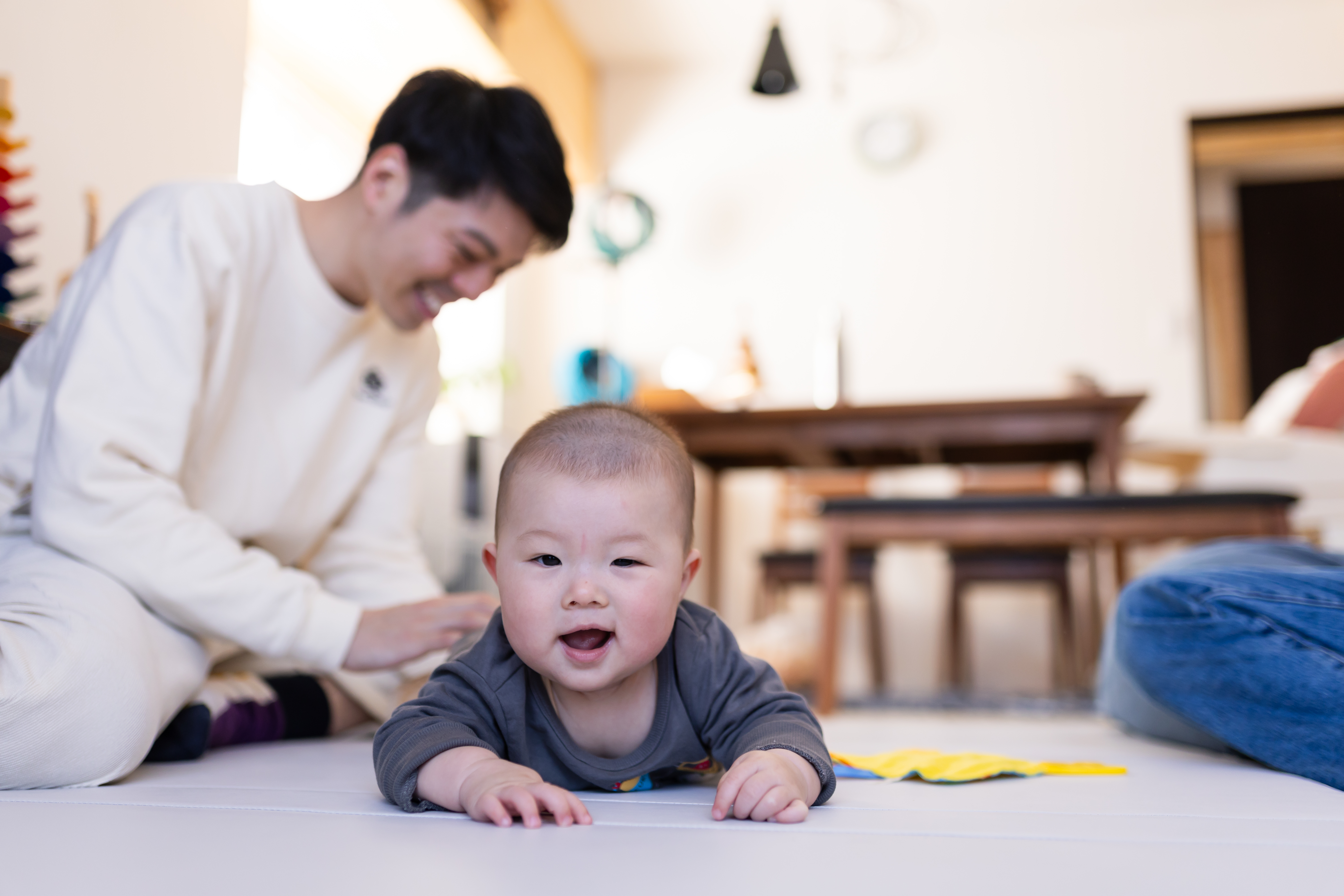There are few events more joyful than bringing home a new baby — and few more overwhelming than sorting through all the gear that comes with them. But as you make your way through the mountain of onesies, bottles, swings, and strollers, there's another important item to add to your home: An air purifier.
Tiny lungs can be especially vulnerable to airborne pollutants, so it is essential to ensure that a baby comes home to an environment with good indoor air quality (IAQ). That's why an air purifier is a nursery necessity for your new baby.
Suddenly worried about your home's indoor air quality? Fear not. From understanding the basics of IAQ to learning about the home systems that can help you improve it, we've outlined everything you need to know about improving your family's indoor air quality.
How Indoor Air Quality Affects Little Ones
Indoor air quality simply refers to the condition of the air in and around your home. This is influenced by a variety of factors like ventilation, humidity, and the presence of pollutants, including pollen, dust mites, pet dander, and particulates from activities like cooking and burning candles.
While common and usually harmless for most people, indoor air pollutants can wreak havoc on sensitive respiratory systems. Infants' lungs are still developing, making them more susceptible to the effects of poor air quality. Even the cleaning products you might use to sanitize baby gear can give off chemicals that linger in the air and cause respiratory irritation.
Since poor indoor air quality has been linked to asthma, allergies, and other respiratory issues, reducing these contaminants as much as possible can help prevent health issues for your little one down the road.
Monitoring Indoor Air Quality at Home
Understanding why indoor air quality is essential for your growing family is just part of the home health equation. The next part is learning what to watch for and monitor inside your home. This comes down to four primary indicators to keep on your radar — and you're probably already paying attention to them:
Humidity Levels: Too much indoor moisture can lead to mold and mildew growth, while too little can cause dry skin, respiratory irritation, and other issues. Aim for an optimal humidity range of 30-50% to keep everyone comfortable and discourage moisture issues.
Temperature Control: Babies need help regulating their body temperatures, and you can support this by maintaining a comfortable indoor temperature between 68 and 72 degrees. Humidity comes into play here, too. High humidity can make a room go from warm to uncomfortable.
Mold or Mildew Presence: Regularly check areas prone to dampness, like bathrooms and basements, and promptly address any leaks or water damage. If issues are allowed to fester, they could end up as mold spores your family could be breathing in.
Dust and Allergens: Regularly vacuuming and wiping down surfaces are excellent ways to keep dust down. Consider source management as well, such as preventing things like pollen and smoke from coming inside and preventing pet dander if possible.
Air Purifiers Can Help with IAQ for Families
Like your baby, indoor air contaminants are just tiny — but unlike your little bundle of joy, excess particulates in the air won't cry out to let you know they're there. Since the last thing you need as a new parent is another core around the house, take advantage of an air purifier as a set-it-and-forget-it method of cleaning the air in your home.
Numerous standalone air purifiers are available to suit any budget and room size — or even a whole house. Look for a model with a HEPA filter to capture 99.97% of airborne particles as small as 0.3 microns. Some models allow you to upgrade to carbon filters that can handle even smaller particles, including smoke, viruses, and odors. Be sure to follow manufacturer directions for filter replacement, and consider swapping out filters more frequently if needed.
Proper placement is key if you're using a room-size air purifier specific to your baby's nursery. Keep the unit somewhere out of the way while still allowing for optimal airflow around the entire unit. Most air purifiers are quiet and can be used anytime — even when the baby is sleeping.
Give Baby a Healthy Start with Clean Air at Home
When it comes to mold, dust, allergens, and other contaminants, an air purifier is the piece of baby gear you didn't know you needed. Many standalone models can work for any family, and adding one to your home is like having a nanny whose only job is to clean the air your family is breathing.
Investing time and effort into improving your home's IAQ is one of the best ways to safeguard your baby's health, but you don't have to do it alone. The ventilation experts at Panasonic are ready to help you with questions you may have about IAQ and air purifier selection, and can even point you to professional installers when more help is needed. Reach out today to get started.





